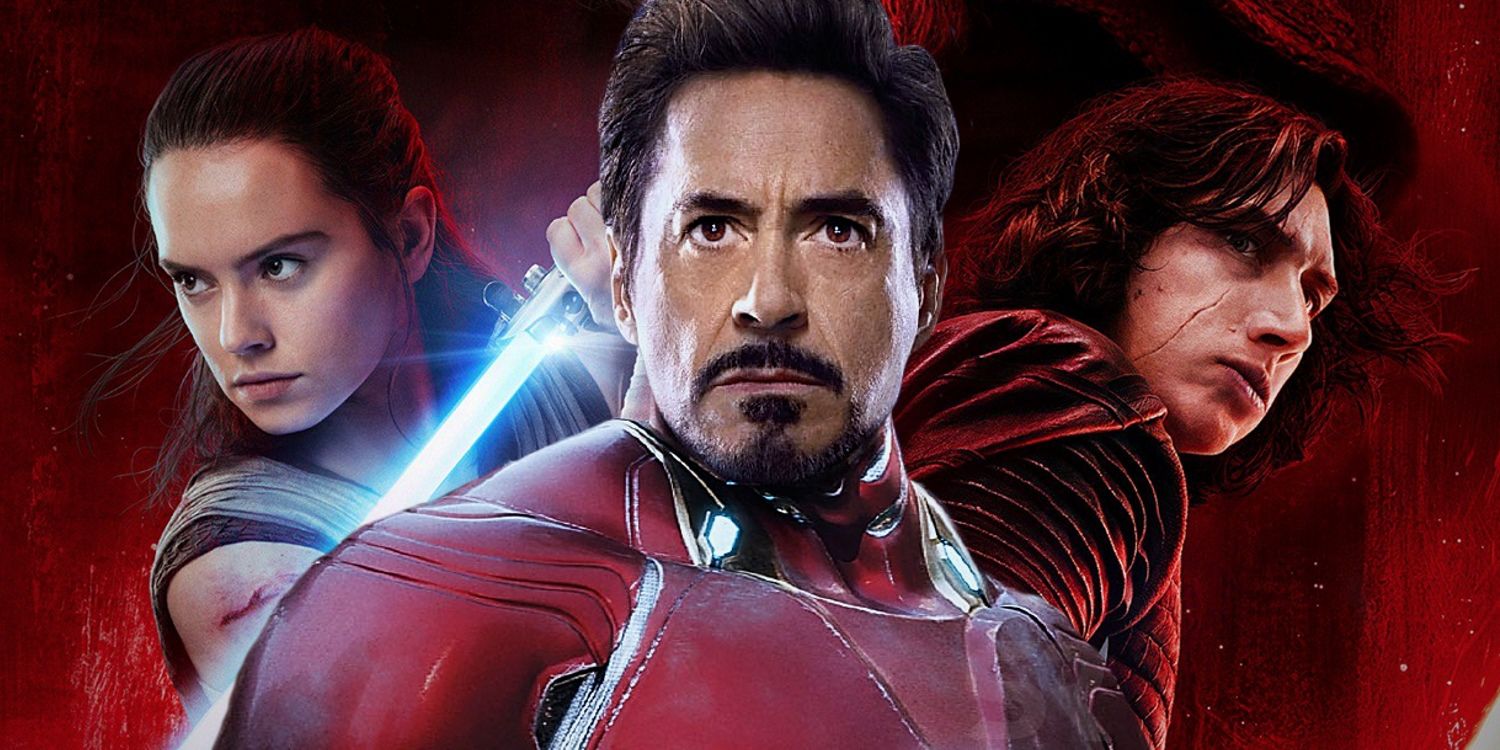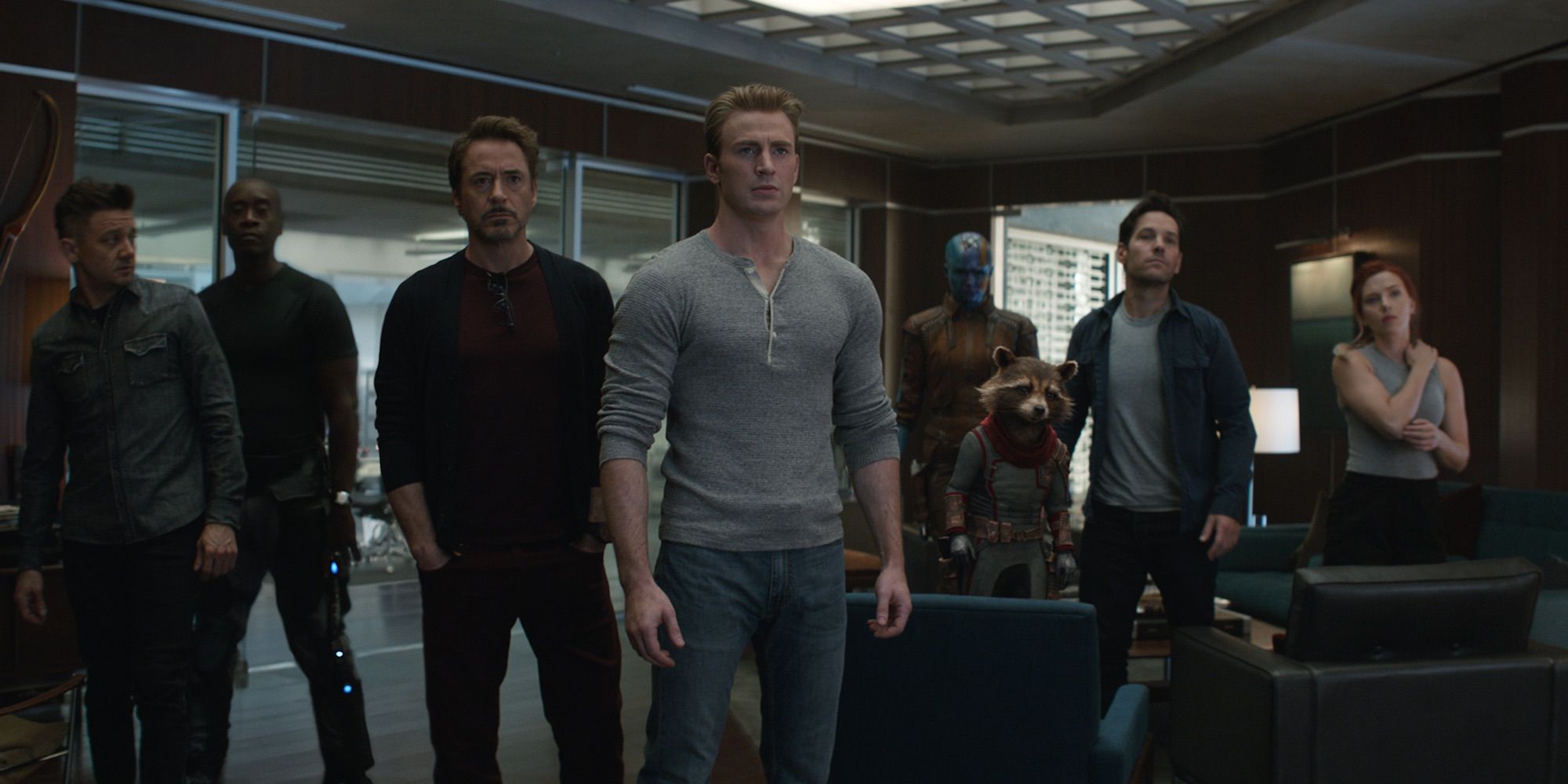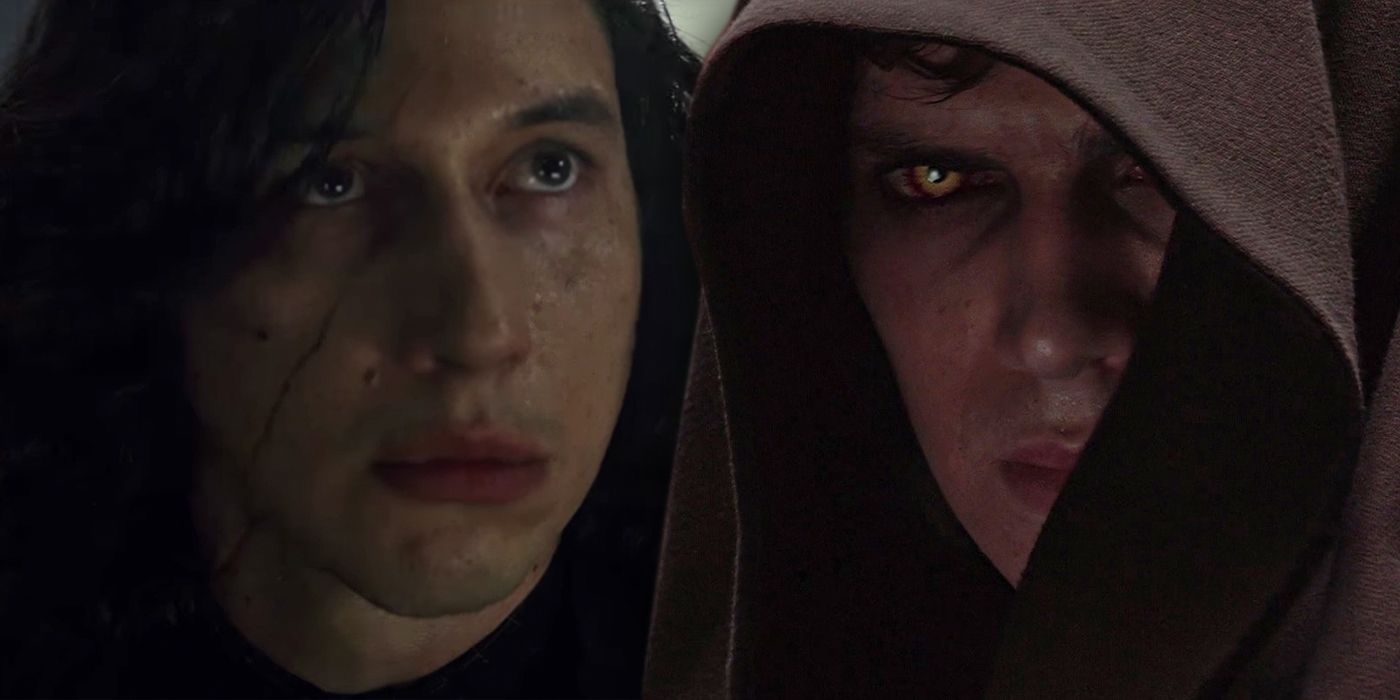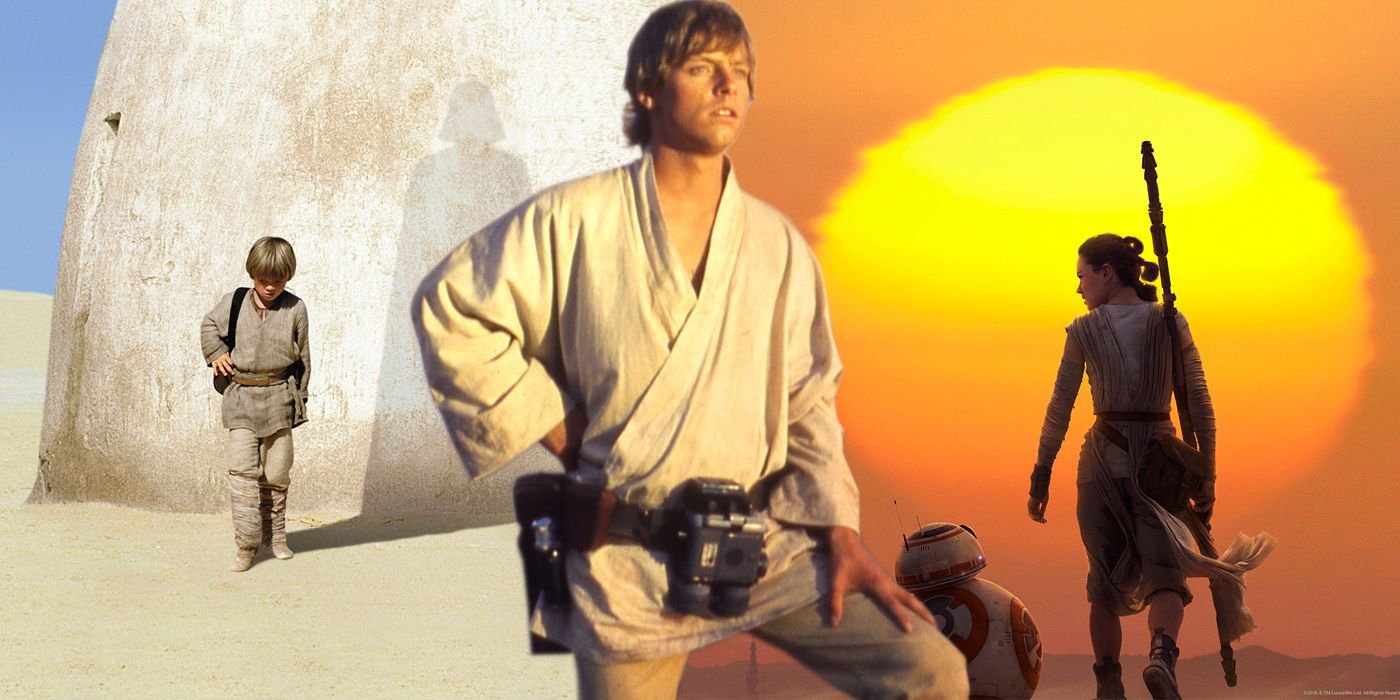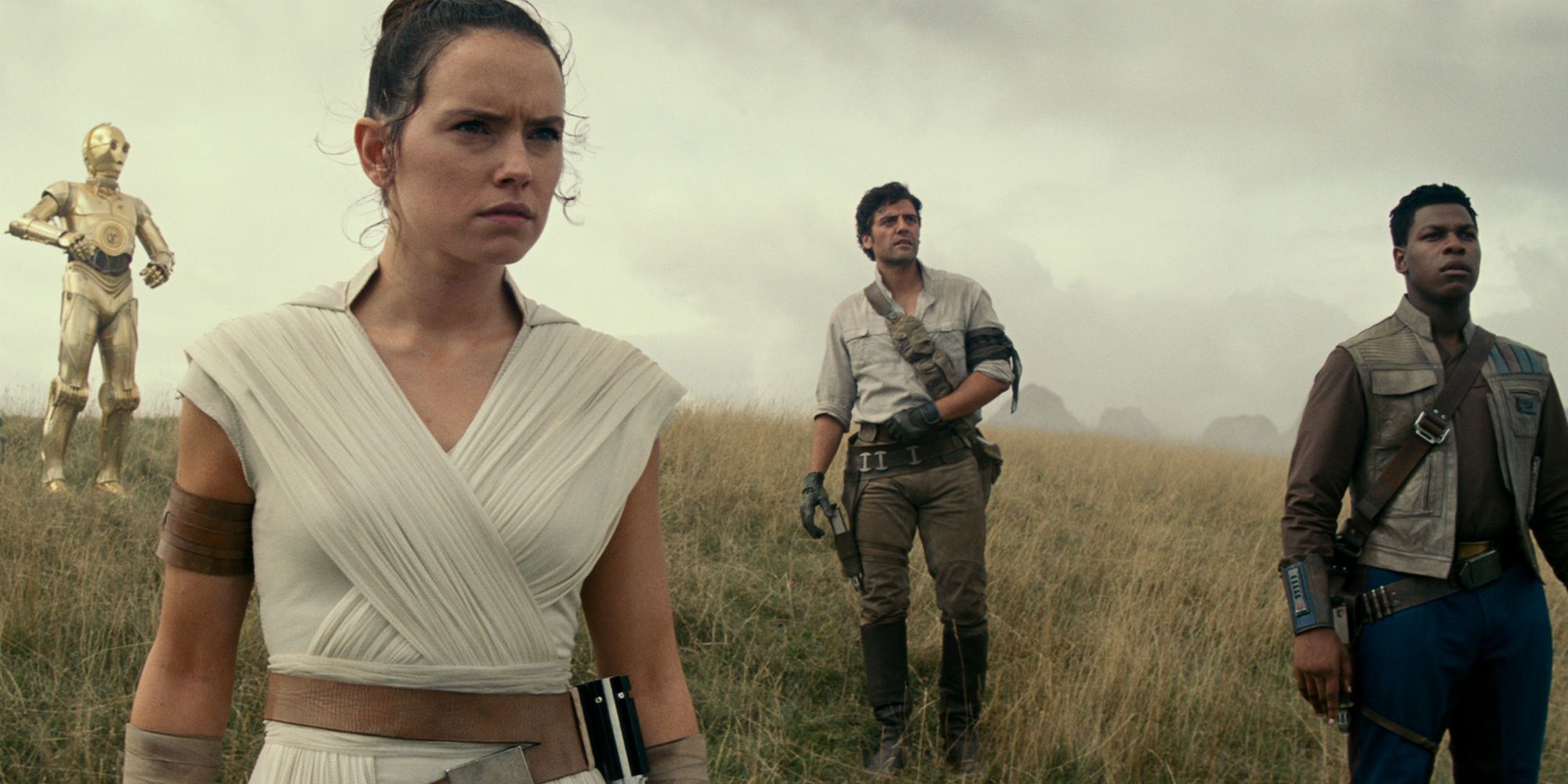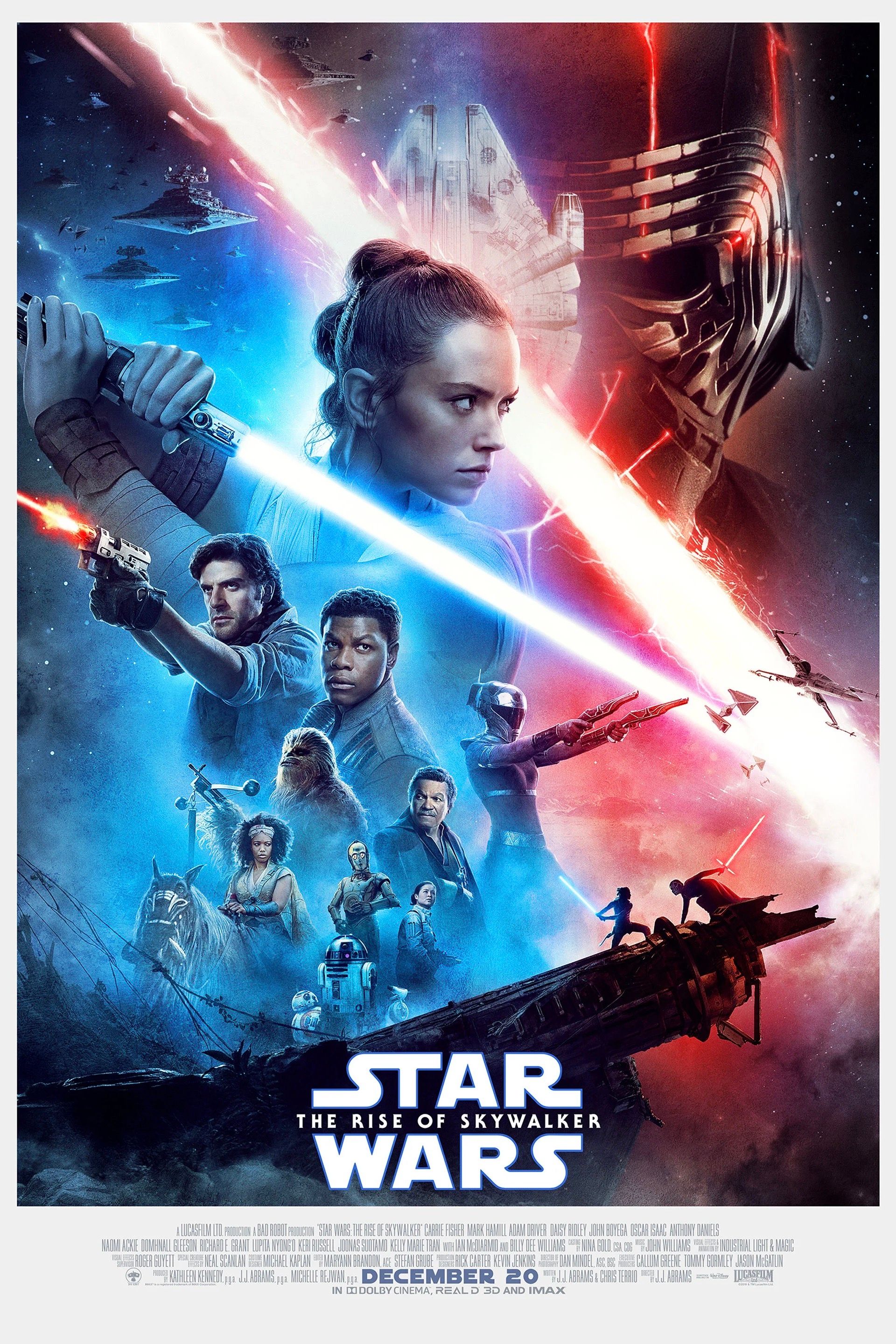Between Avengers: Endgame and the upcoming Star Wars: The Rise of Skywalker, 2019 is a year of endings, but Star Wars: Episode IX needs to have a much more definitive ending to the franchise than Endgame did. Marvel and Star Wars both have their sagas come to an end this year - though Endgame was more of a conclusion of its first saga while Star Wars is a conclusion of the entire Skywalker saga - but while Endgame was a massive success, The Rise of Skywalker just can't end the same way.
Endgame said goodbye to some beloved characters - namely Robert Downey Jr.'s Iron Man and Chris Evans' Captain America - and brought a close to the Infinity Saga that began with Jon Favreau's Iron Man in 2008, but it also set up Phase 4 of the MCU (and beyond, for that matter), acting as both a beginning and an ending in different ways. In contrast, The Rise of Skywalker needs to focus exclusively on the conclusion of both the Star Wars sequel trilogy and the Skywalker saga, so that the story can stand alone as a cohesive narrative.
Sure, Star Wars isn't ending with The Rise of Skywalker, seeing as there are plenty of upcoming Star Wars movies that will release throughout the 2020s, but unlike Endgame and the MCU, the Star Wars franchise going forward will have little to no ties to the original, prequel, or sequel trilogy characters. And The Rise of Skywalker's ending needs to make sure there isn't a need to explore that story again down the line.
Avengers: Endgame Was Never Meant to Be the End
Iron Man and Captain America were the only two heroes who were given a definitive ending in Endgame. While Iron Man sacrificed himself, dying in order to use the Infinity Stones to undo Thanos' destruction, Captain America used the Avengers' new time-traveling technology to live the rest of his life with his beloved Peggy Carter. Since Downey, Jr. had been playing Iron Man for over a decade, and Evans had played Captain America since 2011, it made sense that these two central characters were given different but satisfying send-offs in Endgame.
Despite its name, however, Endgame was always meant to be a springboard for numerous upcoming Marvel movies. Disney's approach to the MCU has always been to release multiple movies a year, and this year is no different, with Spider-Man: Far From Home set to come out in July (even though this is a Sony Pictures film, it's still from Marvel Studios). Based on the trailers, the Spider-Man sequel is set to pick up right where Endgame left off, with Peter Parker grappling with the death of his mentor Iron Man.
In addition to Spider-Man, Endgame also set up Black Panther 2, Captain Marvel 2, Doctor Strange 2, and Ant-Man 3. Even Chris Hemsworth's Thor could ultimately appear once again in Thor 4 or join the Guardians in James Gunn's upcoming Guardians of the Galaxy 3. Furthermore, with Sam Wilson taking Captain America's shield, Anthony Mackie could helm a Captain America movie of his own at some point.
In Marvel and Star Wars, death is not necessarily an ending, either. While Black Widow was killed in Endgame, filming is currently underway on her Black Widow solo film, which will likely release next summer. The multiple timelines introduced by Endgame, too, allow for characters who had died − including Vision, Gamora, and Loki − to return in films or television shows. Because of this time-traveling capability, the MCU can reintroduce any character they choose. As Loki has taught MCU fans multiple times, death does not mean a character is gone for good.
The Skywalker Story is at Its End
Even if the Skywalker bloodline lives on after The Rise of Skywalker, Star Wars' focus on the Skywalker family is coming to a close with Episode IX. The subsequent Star Wars projects that have been announced, both the upcoming television shows and films, plan to focus on other parts of the Star Wars universe. Unlike the MCU model, Disney has announced that it will cut back on upcoming Star Wars films, with one film released every other year after Episode IX. These films will alternate with the upcoming Avatar sequels for the highly-coveted Disney December slot. Additionally, the first Star Wars live-action TV show, The Mandalorian, is set to be released on Disney+ this November.
Given the title of Episode IX, it seems that the Skywalkers will be at the heart of the film. It's possible that the title could signal the name Skywalker will take on a greater significance than simply a family name, in which case, it could live on with some larger meaning. But the title of the film also emphasizes the importance of the Skywalkers in all of the Star Wars trilogy films. The Skywalkers have been the focus of Star Wars for three generations and three cycles of films − and The Rise of Skywalker is meant to act as an ending for the final three films and the entirety of the nine film saga.
Story Structure is Integral to the Skywalker Saga
The de-emphasis of the Skywalkers is an inevitable part of Star Wars expanding in the years to come. The original Star Wars films were inspired by The Hero's Journey, which outlined a specific set of archetypal events that occur as a hero progresses through an adventure of mythic proportions. Along with this sense of timelessness, there is also a sense of repetition: the idea that these things have happened before and will happen again. The Star Wars "Ring Theory" demonstrates the many parallels and connections between the episodic films, which intricately fit together thematically in multiple ways.
However, these parallels and connections have diminishing returns. While a certain level of repetition of themes and events creates a sense of the cyclical nature of the hero's journey, at a certain point, audiences will tune out. Some fans already believe that Star Wars: The Force Awakens follows the plot of A New Hope too closely without introducing new and exciting elements to the story. If Star Wars wants to continue for the foreseeable future, the saga's structure cannot be replicated indefinitely. Instead, Star Wars needs to expand to focus on the many and diverse stories within the universe, rather than telling the story of the Skywalkers.
At the same time, the thematic echoes and connections within the saga can only be brought to a satisfying conclusion if The Rise of Skywalker embraces the story structure of the larger narrative of the hero's journey. Episode IX has an important role to play as the definitive and defining conclusion to an incredible and epic story that is decades in the making. This closure will define the nine films as a complete story with a clearly defined beginning, middle, and end.
What About the Sequel Trilogy's Non-Skywalker Characters?
After The Rise of Skywalker, there will likely be surviving non-Skywalker characters, and their stories should and will be told. Finn, Poe, BB-8, and other Star Wars characters introduced in the sequel trilogy won't be ignored - especially since Disney will be able to make plenty of money off of these fan-favorites. The same is true for Rey, if she isn't a Skywalker, that is. Their stories will inevitably be told in a variety of mediums: books, comics, animation, video games, theme parks, and even spinoff movies.
If their characters survive The Rise of Skywalker (and even if they don't, given that Diego Luna is reprising Cassian Andor), actors John Boyega, Oscar Isaac, and Daisy Ridley will have opportunities to reprise their roles. But by breaking out of the episodic format, Star Wars and its characters can exist without being locked into the dynastic structure. Star Wars can live on and flourish without an Episode X.

